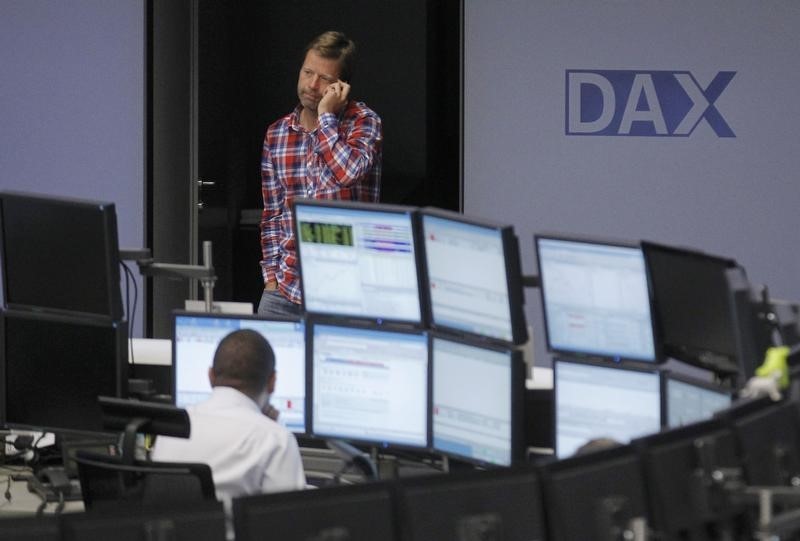By Atul Prakash
LONDON (Reuters) - European shares fell for a fifth straight session on Tuesday, with investors becoming jittery before next week's referendum in Britain on its membership of the European Union and a two-day meeting of the Federal Reserve starting later in the day.
Swiss money manager GAM Holding (S:GAMH) dropped nearly 17 percent to a 4-1/2-year low after warning it expects a roughly 50-percent year-on-year fall in first-half underlying profit before tax, mainly due to lower performance fees.
However, Premier Farnell (L:PFL) surged 50 percent after Daetwyler Holding (S:DAE) agreed to buy it in an all-cash offer that valued the British electronic component distributor at just over 1 billion Swiss francs ($1.04 billion).
The pan-European FTSEurofirst 300 index (FTEU3) fell 1.1 percent to 1,269.98 points by 1023 GMT after hitting its lowest since February.
The STOXX Europe 600 (STOXX) was down 1.2 percent, while the European oil and gas index (SXEP) fell 1.8 percent to be the top sectoral decliner, tracking weaker oil prices.
The Euro STOXX 50 volatility index (V2TX), Europe's main gauge of equity market investor anxiety, surged to a four-month high of 36, against 20 about two weeks ago, over Brexit fears.
"Brexit concerns are pushing the volatility index higher and particularly hitting financials. This increased volatility is likely to last at least until the referendum," KBC senior economist in Brussels, Koen De Leus, said.
Two opinion polls published by ICM showed on Monday that Britain's "Leave" campaign had widened its lead over the "Remain" camp ahead of the June 23 referendum on EU membership, stoking investors' general nervousness.
The European banking index (SX7P) was down 1.2 percent, taking total losses to more than 26 percent this year. It is the worst performing sector in Europe in 2016.
Uncertainty over this week's two-day Fed meeting, starting later on Tuesday, also weighed on markets. The U.S. central bank is widely expected to leave rates unchanged after the much weaker-than-expected May nonfarm payrolls report, analysts said.
"Markets will continue to price in a worst-case scenario meaning further declines are likely in the days ahead except if there would be a substantial shift in public opinion or some kind of verbal intervention from politicians or central bankers to bring back calm into the markets," City of London Markets trader, Markus Huber, said.
